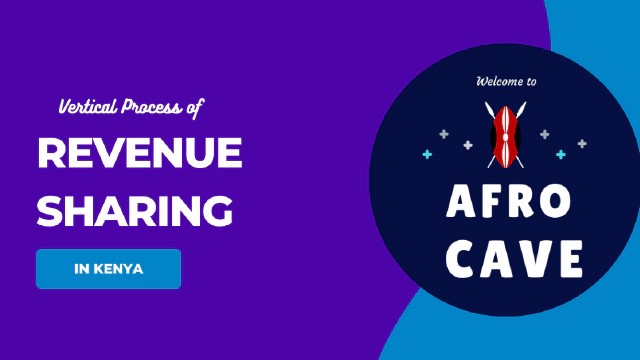Article 202 of the Constitution of Kenya provides for the vertical process of sharing national revenue in Kenya. Vertical sharing refers to the process of sharing revenue raised nationally (equitable share) between the national and the county governments.
The national and county governments shall share the revenue raised nationally equitably between them. Article 202 also provides for additional allocations to the county governments from the national government’s share of the revenue. These allocations can be either conditional (conditional grants) or unconditional.
Article 201 of the Constitution states the principles of public finance. It provides for an equitable society promoted by the public finance system. This results from, among other factors, the vertical sharing of revenue raised nationally in Kenya.
Table of Contents Show/Hide
The equitable share
The term “equitable share” refers to the unconditional allocation of revenue raised nationally for both the national and the county governments. For this share of revenue, both levels of government can spend it to offset their functions without any restrictions from either of them.
Equitable share refers to the ordinary revenue raised nationally by the national government. This amount is shared equitably between the national and the county governments.
The ordinary revenue is the revenue received from taxes.
The equitable share is unconditional where both levels of government can spend it legally without any restrictions from either of them.
Conditional allocations have terms under they can be spent. The funds cannot be reallocated other purposes other than which they are meant for.
For conditional allocations (or conditional grants), one condition might be for the county governments to put in “matching” funds. For instance, a county government may receive a grant for 75 per cent of the cost of some service, such as the construction of a hospital. The county shall put in the remaining 25 per cent on its own. If it refuses or is unable to match, it may not receive the grant.
Conditional grants for county governments
The county governments receive conditional grants from the national government’s equitable share. That is, after both levels of government receive their share of the revenue raised nationally, the county governments receive additional funding from the national government’s share.
These conditional grants include the Equalization Fund and other grants that serve a specified purpose and which may vary every financial year.
The county governments also receive additional funding from development partners such as the World Bank in form of loans and grants.
Some of these grants are not directly included in the county government’s equitable share of the revenue raised nationally. They are spent by the national government’s ministries, departments and agencies on behalf of the county governments.
Criteria for vertical sharing of revenue raised nationally in Kenya
Article 203(1) states the criteria to follow in determining the vertical sharing of revenue raised nationally in Kenya under Article 202. It also considers any legislation concerning county governments in relation to Chapter 12 of the Constitution.
One obligation is the need to ensure county governments can execute their functions. The other is their fiscal capacity and efficiency, among others.
The threshold for the equitable share for the counties
A key area to note on the vertical sharing of revenue raised nationally in Kenya is Article 203(2) and (3) of the Constitution. The two articles sdefine the equitable share of revenue going to the counties for each financial year. The revenue shall not be less than 15 per cent of all the revenue collected by the national government. The base for this amount is the most recent audited accounts approved by the National Assembly.
The audited accounts are accounts from the Auditor General’s office that shall be tabled before parliament six months after the end of the financial year in June. Parliament must approve these audited accounts before they are used for vertical revenue sharing.
There is a general misconception that the 15% mentioned in Article 203 is the amount of money that counties receive as equitable share. However, that is not the case. The county governments’ equitable share from the vertical sharing of revenue raised nationally in Kenya depends on factors such as–
- the cost of functions for each level of government in the Fourth Schedule of the Constitution (which influences the division of revenue under Article 218 of the Constitution). Basically, the cost of providing the services based on functions that fall under either the national or county level.
- assumptions on revenue growth (e.g. by what percentage national revenue has grown in a particular year), and
- inflation,
- other conditions set out in Articles 201, 202, and 203 of the Constitution.
The 15% acts as a baseline for determining whether the amount of equitable share of revenue allocated to the counties is reasonable. The money Parliament allocates to the county governments has always been above this threshold since the threshold is quite minimal.
Costing of functions
The vertical process of sharing national revenue in Kenya relies primarily on the costing of functions. The Fourth Schedule of the Constitution divides the functions between the national and the county governments. When allocating the money, the national government shall determine the costs of performing the individual functions.
For example, what is the cost of providing health services in relation to security? Here, health is a county function and security a national function. The costing of functions will determine the amount of money that each level of government shall receive based on their functions.
The defunct Transition Authority and the Commission on Revenue allocation came up with a manual for the costing of functions between both levels of government. Before that, the costing of devolved functions relied on the cost the national government incurred in providing the services before they were devolved.
The vertical process of sharing national revenue in Kenya can also incorporate adjustments on issues like inflation and public debt. Other conditions (may) include those set under Article 201 and 203(1) of the Constitution.
The sharing of the revenue raised nationally between the national and the county governments is vertical sharing because it is just between the two levels of government. The sharing of the counties’ equitable share among the 47 counties is the horizontal sharing (Article 217 and 218 of the Constitution).
The vertical process of sharing national revenue in Kenya takes place through the Division of Revenue Act. This is under Article 218(1) (a) of the Constitution and Section 191 of the Public Finance Management Act.
Both the Senate and the National Assembly have a role to play in the vertical process of sharing national revenue in Kenya. They both have to approve the Division of Revenue Bill before the President signs it into law.

